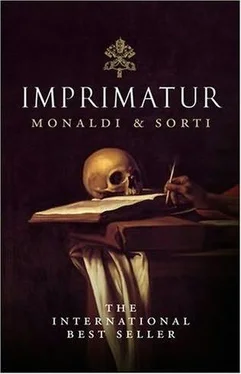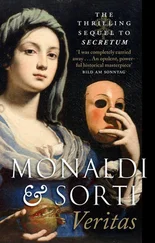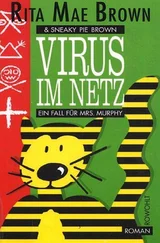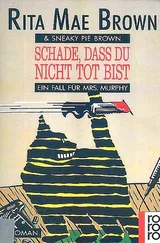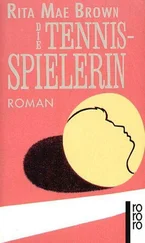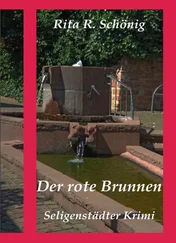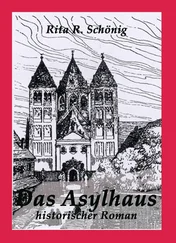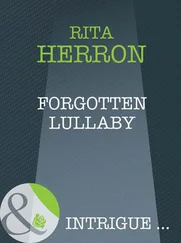Rita Monaldi - Imprimatur
Здесь есть возможность читать онлайн «Rita Monaldi - Imprimatur» весь текст электронной книги совершенно бесплатно (целиком полную версию без сокращений). В некоторых случаях можно слушать аудио, скачать через торрент в формате fb2 и присутствует краткое содержание. Жанр: Исторический детектив, на английском языке. Описание произведения, (предисловие) а так же отзывы посетителей доступны на портале библиотеки ЛибКат.
- Название:Imprimatur
- Автор:
- Жанр:
- Год:неизвестен
- ISBN:нет данных
- Рейтинг книги:5 / 5. Голосов: 1
-
Избранное:Добавить в избранное
- Отзывы:
-
Ваша оценка:
- 100
- 1
- 2
- 3
- 4
- 5
Imprimatur: краткое содержание, описание и аннотация
Предлагаем к чтению аннотацию, описание, краткое содержание или предисловие (зависит от того, что написал сам автор книги «Imprimatur»). Если вы не нашли необходимую информацию о книге — напишите в комментариях, мы постараемся отыскать её.
Imprimatur — читать онлайн бесплатно полную книгу (весь текст) целиком
Ниже представлен текст книги, разбитый по страницам. Система сохранения места последней прочитанной страницы, позволяет с удобством читать онлайн бесплатно книгу «Imprimatur», без необходимости каждый раз заново искать на чём Вы остановились. Поставьте закладку, и сможете в любой момент перейти на страницу, на которой закончили чтение.
Интервал:
Закладка:
The most interesting case, however, was that of the Bartolotti, from Bologna: originally humble brewers, then merchants, and, in the end, the most prosperous of financiers. They had intermarried with a Dutch family until all trace of their original Italian blood was lost. In fact, the Protestant Bartolotti had in the space of a few decades become wealthy enough to be able to finance the House of Orange, lending money in quantity, first to William's grandfather, then to the Prince himself. The loans were sometimes secured against mortgages on lands in Holland and Germany.
Money against land: according to Dulcibeni, the Odescalchi had entered into an identical pact with the House of Orange. An interesting coincidence.
For the time being, I had learned enough about the Italian merchants and financiers of the House of Orange. It was time to pass on to the Odescalchi, and to get their papers to talk.
I spent months and months, I no longer recall how many, in the archives of Palazzo Odescalchi and the Rome State Archives, with only the help of one young assistant, both of us tormented by the cold and the dust, all day long with our heads bent over papers. We combed through all the papers of Innocent XI, in search of anything that could lead us to William of Orange: letters, contracts, rescripts, reports, memoranda, diaries, ledgers. All to no avail.
Much time had passed since the start of my research, and I had the feeling that I had run into the sands. I began to toy with the idea of giving up: until the thought came to me that Dulcibeni had spoken of Venice, saying that all the money for Holland had been sent from there. And in Venice, there was a branch of the Odescalchi concern: it was there that I must seek the way through to my goal.
From the will of Carlo Odescalchi, Benedetto's elder brother, I learned that the property of the family had always remained commune et indivisa between the two: in other words, what belonged to the one belonged to the other. That was why the Pope seemed so poor on paper. Only by examining his brother's accounts was I able to discover how much he really possessed.
Carlo Odescalchi was in fact the fulcrum of the family's economic activity: he administered the family's considerable possessions in Lombardy; he also directed from Milan the branch in Venice, which was managed by two procurators. I therefore sought the two books containing the Inventory of Property referred to in Carlo's will. These could have resolved the problem. If a list of debtors were annexed to them, William of Orange would have appeared among them. Strangely enough, however, there was no trace of any such inventory.
I then took a look at Carlo's private ledgers, and at last found what I sought. In the heavy vellum-bound volumes kept by the brother of the Blessed Innocent XI until his death, and today held by the State Archives of Rome, there emerged trading and transactions on a colossal scale: millions and millions of scudi. A small proportion of the operations concerned commercial transactions: revenue from excise duties and rents. Then came what interested me: hundreds of financial operations, largely carried out from Venice by two procurators, Cernezzi and Rezzonico, who received commissions for these transactions. The blood in my temples throbbed violently when I saw that most of these operations were directed towards Holland. I wondered how the matter had never yet come to light; an archivist explained to me that these two ledgers had for centuries lain forgotten in the cellars of Palazzo Odescalchi and had only recently been sold to the State Archives of Rome. No one had yet looked into them.
It was not difficult to get to the bottom of the matter. Between 1660 and 1671, Carlo Odescalchi had ordered payments in various currencies from Venice to Holland totalling 153,000 scudi: a sum almost equal to the entire, gigantic annual outgoings of the ecclesiastical state (173,000 scudi) at the time when Benedetto was elected pope.
Within the space of nine years, between 1660 and 1669, the Odescalchi sent a good 22,000 scudi to the financier Jan Deutz, founder and proprietor of one of the principal Dutch banks. The Deutz family were literally a piece of Holland, not only for the vast wealth which they had accumulated, but the government posts which they occupied at all levels, and their links of kinship and marriage with the most prominent members of the country's ruling class. Jan Deutz's brother-in-law had been the Grand Pensioner Jan de Witt, preceptor and mentor of the young William III. Jan Deutz the Younger, the banker's son and partner, was a member of the Amsterdam city council from 1692 until 1719; Deutz's daughters and granddaughters married burgomasters, generals, merchants and bankers.
That was only the beginning: between June and December 1669, a further 6000 scudi were sent by the Odescalchi to a company of which Guillelmo Bartolotti, one of William of Orange's financiers, was a partner. That was the decisive proof: the Odescalchi sent money to the Bartolotti, and they lent it to William. Thus, the money passed from the coffers of the Odescalchi to those of the House of Orange.
The more I knocked, the more doors opened up to me. Between November 1660 and October 1665, the Venetian procurators of the Odescalchi sent another 22,000 scudi to a certain Jean Neufville. Now, Neufville was certainly no minor figure in William's entourage; his daughter Barbara married Hiob de Wildt, who served first as Secretary of the Admiralty at Amsterdam and later as Admiral- General, appointed by William himself. The de Wildts had, moreover, always had ties with the House of Orange; Hiob's grandfather, Gillis de Wildt, had been appointed to the Haarlem city council by Prince Maurice of Orange. Hiob de Wildt, however, gathered the finance necessary for the invasion of England in 1688 and, after William ascended to the English throne in 1688, acted as his personal representative in Holland.
Finally, in October 1665, a small sum was also sent by the Odescalchi's procurators to the company of Daniel and Jan Baptista Hochepied, the first of whom was a member of the Council of Amsterdam as well as Chairman of the East India Company: the commercial and financial powerhouse of Protestant Holland.
So it was true. Dulcibeni had invented nothing: the Dutch secretly financed by the Odescalchi were precisely those whom the Jansenist had finally revealed to the young apprentice. This tied in with one important detail: in order to leave no traces, the money was sent to friends of the House of Orange by the two Venetian proxies of the Odescalchi, Cernezzi and Rezzonico. Sometimes Carlo Odescalchi noted in his ledgers that such and such an operation was to be made in the name of Cernezzi and Rezzonico, but the money was his; and thus, his brother's too.
Finally, I also found loans to the slaver Francesco Feroni: 24,000 scudi in ten years, from 1661 to 1671: who knows how much those loans may have earned? That would explain the Odescalchi's willingness to accept Feroni's claims on Dulcibeni's daughter.
Not only that: the Odescalchi had also lent money to the Genoese Grillo and Lomellini, holders of the Spanish royal charter for the traffic in slaves, and in their turn friends and financiers of Feroni. Since these documents, too, have never been studied by historians, I shall indicate where they are to be found (Archivio di Stato di Roma, Fondo Odescalchi, XXIII, A (1), p. 216. Gf. also XXXII E (3), (8)).
I checked how many scudi were sent by the Odescalchi to Holland and have drawn up a graph of these operations:
The money was certainly used to finance wars. That is confirmed by the dates: in 1665, for instance, when payments reached their maximum of 43,964 scudi, Holland went to war with England.
My work would have been considerably easier if I had been able to compare Carlo Odescalchi's ledgers with his commercial correspondence. Strangely, however, the letters from 1650 until 1680, which must give the names of debtors in Holland, are nowhere to be found: they are neither in the Rome State Archives nor in the Archives of Palazzo Odescalchi, the only two places holding the family's documents where these may be consulted.
Читать дальшеИнтервал:
Закладка:
Похожие книги на «Imprimatur»
Представляем Вашему вниманию похожие книги на «Imprimatur» списком для выбора. Мы отобрали схожую по названию и смыслу литературу в надежде предоставить читателям больше вариантов отыскать новые, интересные, ещё непрочитанные произведения.
Обсуждение, отзывы о книге «Imprimatur» и просто собственные мнения читателей. Оставьте ваши комментарии, напишите, что Вы думаете о произведении, его смысле или главных героях. Укажите что конкретно понравилось, а что нет, и почему Вы так считаете.
